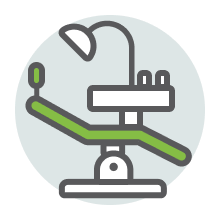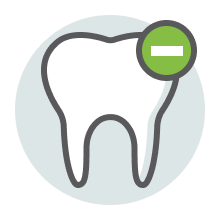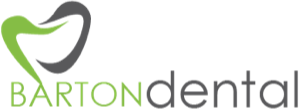5 Myths About Tooth Extraction



5 Myths About Tooth Extraction
It’s no secret that a tooth extraction is one of the most dreaded dental procedures. It’s easy to understand patients’ unease– after all, no one cherishes the idea of losing a tooth. But, while it may not be ideal, sometimes a tooth extraction is the only way to address a severe dental issue.
Due to the tooth extraction procedure’s nasty reputation, we’ve found that patients often come in with misguided ideas about what the procedure entails. Despite what you may have been told, tooth extraction is really nothing to worry about. To reassure you, we’ve decided to dispel the 5 most common tooth extraction myths.


1. Tooth Extraction is Painful
Without a doubt, the most common myth we encounter among our patients is the belief that a tooth extraction hurts. Before removing a tooth, our doctors take extra care to ensure that the area surrounding your tooth is completely numbed. They achieve this through the use of local anesthetics and pain medication which also eases the discomfort after the procedure has ended.
Patients who suffer from a severe tooth infection or significant tooth damage are often pleased to find that the sensation following a tooth extraction is relief from persistent discomfort.
The most you can expect to feel during your extraction is some minor discomfort. Once the procedure is over, a little pain is normal at first, but is easily treated with the proper medication.
2. Tooth Extraction Takes a Long Time to Recover From
Immediately following your procedure, you can expect some bleeding from the extraction area as well as some lingering numbness from the anesthetic. Once these effects wear off, you’ll need to keep the extraction area clean and take pain medication and antibiotics as needed to mitigate discomfort and reduce inflammation. You should avoid strenuous activity for at least 48 hours after the procedure.
Typically, patients are back to themselves again around four days after a dental extraction. To keep from aggravating the extraction area, avoid brushing or flossing the area until your doctor tells you it’s okay to do so.
3. Tooth Extraction is Risky
While there is some risk associated with any surgical procedure, complications from tooth extractions are quite rare. This is a routine procedure in which our surgeons at Barton Dental Clinic are well-versed, having performed it many times over the years.
While complications are uncommon, the following are a few that we like to bring to our patients’ attention:
- Infection following surgery
- Dry socket
- Nerve injury
- Perforation of the maxillary sinus
- Delayed healing
In an effort to mitigate post-surgery complications, we let our patients know the best way to care for their mouths after the extraction. This includes proper cleaning and dressing of the extraction area, as well as taking the correct antibiotics if infection is an issue.
4. You Can’t Eat Hard Foods for a Week Following a Tooth Extraction
After your tooth extraction operation, the extraction area will be very sensitive and vulnerable to infection or injury. Because of this, we strongly encourage patients to avoid chewing on the side of the mouth from which the tooth was extracted, and only eat soft foods for a couple of days following the surgery. Once the extraction area has healed, you can begin eating regularly again.


5. A Tooth Replacement is Not Necessary After a Tooth Extraction
Whether you’re missing teeth due to extraction or any other reason, tooth gaps can lead to significant dental issues if they aren’t filled. Issues that may arise as a result of missing teeth include jawbone deterioration, facial collapse, shifting teeth, and issues with chewing.
Fortunately, we offer several methods of filling tooth gaps at our Hamilton Dental Office:
If you’re interested in any of these procedures following your dental extraction, we encourage you to discuss it with your doctor to find out which treatment works best for you.

